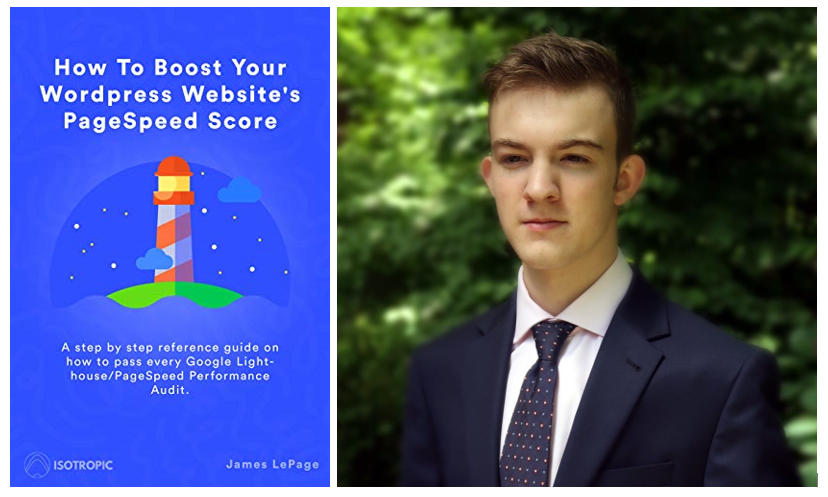
James LePage ’23 (Whitman) has published a book, “How To Boost Your WordPress Website’s PageSpeed Score,” now available on Amazon and available in Kindle edition. A member of the LaunchPad, LePage is founder and CEO of Isotropic Design, a digital agency that builds websites, runs high-converting ad campaigns utilizing lead generation tools and search engine optimization services, and offers branding and the creation of digital assets to enhance a company’s image. He is also the founder of Wapp Cap Financial Media, a top-rated analysis and rating provider, and Wappinger Capital Research, a platform rated as a Top 100 Global Financial Blogger. As a SU freshman, he created a student venture, EDGEModular.
LePage wrote the book to help companies enhance the functionality and impact of their websites. “The speed of your WordPress website is one of the most essential elements, after design,” says LePage. Google offers a tool called PageSpeed which has quickly become industry standard in measuring the performance of your website. The book is a step by step reference guide on how to pass every Google Lighthouse/PageSpeed Performance Audit, created for both the website owner, and the avid WordPress developer.
The book helps companies understand why a site isn’t passing the audit, and then learn how to fix it with theory, real world applications, and plugin suggestions. “Addressing failed audits won’t directly impact your performance score,” he says. “Similarly, increasing your performance score won’t directly increase your SEO placement. However, passing audits means that your website is faster. Addressing failed audits will make your site load quicker. A quicker loading website will increase your PageSpeed score.”
When you increase your Google PageSpeed Score, you don’t just get a quicker site, he notes. “You get a whole host of ripple benefits.” He cites a few. The average bounce rate for a website that takes five seconds to load is 38%. That bounce rate drops to 7% when your site takes 1.5 seconds to load.
“When you make your website faster, you rank higher on Google. Google will place faster loading sites on Page 1-2, and because 75% of people don’t even scroll to page 2, you need to be on page 1.”
Le Page adds that, “When you boost your page placements on search engine results with a faster site, you get more visits,” and notes that, “93% of them come from a search engine, so this is important.”
“Faster sites, happier visitors and better UX leads to more conversions to leads. And finally, more leads result in more revenue.”